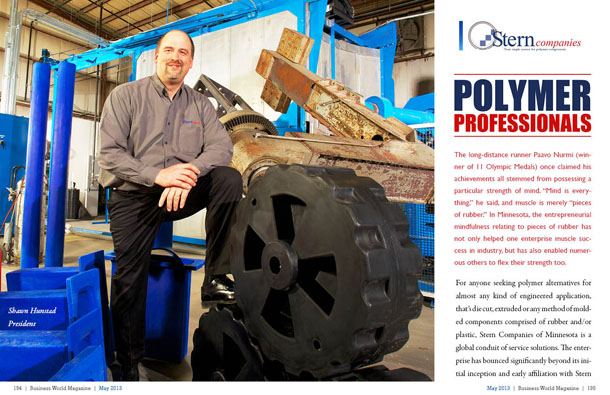

Daishowa-Marubeni International Ltd (DMI) is an integrated forest products company that employs over 600 people in British Columbia and Alberta and conducts business with an additional 600 woodlands, log and chip haul contractors. DMI’s history begins in 1969 in Western Canada, where it was formed as a joint venture between Daishowa Paper Manufacturing and Marubeni Corporation of Japan as well as Weldwood of Canada. This partnership founded the Cariboo Pulp and Paper Company in Quesnel, British Columbia, establishing a high quality bleached kraft pulp mill. Today, that mill produces bleached softwood kraft pulp that is able to meet stringent requirements for brightness, cleanliness and strength – which makes it suitable for even the world’s most demanding markets.
Cariboo Pulp and Paper began production of that pulp in 1972. In the years since, DMI has undergone a series of corporate evolutions. In 1992, for example, DMI absorbed Daishowa Canada’s Alberta assets – two sawmills located in the northern Alberta towns High Level and Red Earth Creek, as well as a modern kraft pulp mill located in Peace River. The pair of sawmills were sold in 1999 and 2000, which reflected DMI’s desire to focus on its core business of pulp production. This sale left DMI’s Alberta operation to the bleach kraft pulp mill in Peace River, which they titled the Peace River Pulp Division (PRPD). Peace River has since become one of the top ten pulp producers in North America.
Another corporate change occurred in 2003, when Daishowa in Japan was acquired and amalgamated into Nippon Paper Industries. Nippon Paper is Japan’s second largest pulp and paper manufacturing company, so that acquisition puts an extremely significant amount of international support and power behind DMI – especially when you consider existing partner Marubeni, which is one of the major trading companies in Japan and one of the world’s largest dealers in market pulp.
Finally, DMI’s corporate composition changed again the very next year, in 2004. That is when West Fraser Timber – an Alberta-based forest products company – purchased Weldwood of Canada’s assets, assuming a new joint venture relationship with DMI at Cariboo Pulp and Paper.
Peace River and green power
The Peace River Pulp Mill opened in July of 1990, with a capital investment totalling $580 million. PRPD is a bleached kraft pulp mill that transforms locally harvested aspen chips and white spruce softwood chips (supplied by neighbouring lumber mills) into high quality pulp. That premium pulp is later sold on the world market to paper producers, who in turn use it for a variety of high-grade products – such as photographic paper, greeting cards, traffic sign reflective backgrounds, and more. The Peace River mill annually produces over 480,000 air-dried metric tonnes of hardwood and softwood bleached kraft pulp – pulp which is recognised and renowned internationally for its brightness and quality.
Through its PRPD mill, DMI also manages 2.9 million hectares of timberlands (42.6 per cent of which is productive) to supply most of its fibre requirements for its pulp mill in Peace River. They also have Deciduous Timber Allocation tenure on an additional 5 million hectares. DMI ensures these lands are managed sustainably, and utilised for commercial harvest, reforestation, wildlife habitat, fish habitat, ecological diversity and other non timber values. The PRPD is FORESTCARE certified and ISO 14001 certified. DMI goes to these lengths not only to comply with federal and provincial regulations, but because sustainability is important to them – and has been for a long time.
That importance was validated in 2006, when the Alberta government recognised DMI as an EnviroVista leader for environmental excellence – a recognition given to facilities with at least five years of exemplary emissions performance, an audited environmental management system, and five years without any prosecutions under Alberta’s Environmental Protect and Enhancement Act. They also received the same recognition a year earlier.
There are other examples of DMI’s sustainability commitment as well. They have spent in excess of $1 million overall in upgrading their odour reduction systems, for example. They also keep a close eye on their waste water and nutrient discharges, and use a filtration system to remove matter before returning water used in their process to the environment. Most recently, they have participated in a project to increase the efficiency of their Peace River Pulp Mill’s production of green electrical power and decrease its environmental footprint. DMI are doing this as part of the Green Power Enhancement Project, and the Government of Canada has invested $40.57 million into seeing it happen.
The increase in green power production by the PRPD will be accomplished in two primary ways. First off, they will increase high pressure steam generation via upgrades to the mill’s black liquor recovery boiler – which PRPD has twenty of experience operating. Secondly, they will convert that additional high pressure steam to green power by installing a condensing steam turbine generator. This project will not just benefit DMI alone – it will also produce an anticipated 126,000 megawatt-hours per year of electricity generated from renewable sources, power that will be sold to the Alberta grid.
DMI declined to comment on this story.






